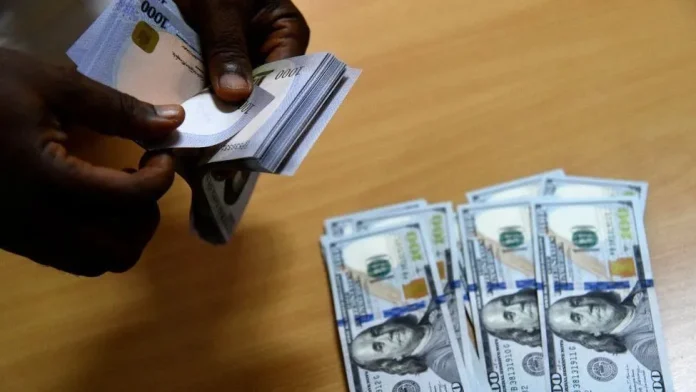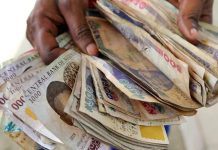The official foreign exchange market witnessed a significant increase in dollar supply, rising by 180.59 percent to reach $440.13 million on Friday. This surge in liquidity followed a turbulent week in the foreign exchange market, with the naira closing at N1435.53 per dollar.
Data from FMDQ Security Exchange revealed that forex turnover soared from $156.86 million on Thursday to $440.13 million on Friday. Apart from commercial banks, the Central Bank of Nigeria, oil firms, and multinationals also participate in selling dollars at NAFEM.
The improved liquidity can be attributed to the Central Bank of Nigeria’s efforts to stabilize the foreign exchange rate. Before closing at N1435.53 per dollar on Friday, the naira experienced intraday fluctuations, reaching a high of N1526 per dollar and a low of N838.96 per dollar.
Meanwhile, at the parallel market on Friday, the naira closed at N1,420 per dollar, reflecting a steady demand for the greenback.
Last week, the CBN introduced new circulars and guidelines aimed at enhancing liquidity and narrowing the gap between parallel and official exchange rates. In a significant move, the CBN ordered banks to adjust their FX exposures, expressing concern about the growing trend of banks holding large foreign currency positions.
The circular titled “Harmonisation of Reporting Requirements on Foreign Currency Exposures of Banks” mandated that banks’ Net Open Position (NOP) must not exceed 20 percent short or 0 percent long of the bank’s shareholders’ funds. The deadline for compliance was set for February 1, 2024.
A top bank executive, speaking anonymously, stated that the new circular would compel banks to sell about $5 billion. The CBN’s objective is to ensure that banks do not hold excess dollar liquidity without a clear purpose, encouraging stability in the exchange rate and attracting foreign investors.
In related news, S&P Global Ratings affirmed Nigeria’s ‘B-/B’ long- and short-term foreign and local currency sovereign credit ratings. The global rating firm maintained a stable outlook for the country, citing the government’s capacity to execute its reform agenda, which would support growth and fiscal outcomes. S&P Global Ratings also projected that the clearance of FX arrears and more expensive imports would limit the rise in Nigeria’s FX reserves.











